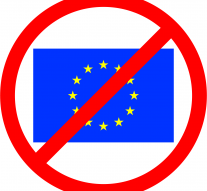
On the Edge of the Seat
Future Europe 15 January 2019“Everything must change so that everything can stay the same”: some might say that for the European elections in 2019. The year ahead is promising in terms of surprises and momentums in European politics.
The process that we aim at following in this column hardly progressed over the past two years. There is no grand plan for the Future of Europe advancing in the institutions. And still, every politician agrees that the upcoming electoral campaign will be about the soul of Europe, generating expectations.
Interesting debates could rise where parties who govern together will compete in the European elections – in Germany, Italy and Spain for instance. Moreover, for the first time in the EU history, eurosceptics are very strong. They cannot win the majority and they know it, but they won’t say it. Thundering promises and undeliverable manifestos will take the stage. In the meantime, the left is losing ground almost everywhere in Europe. These elections can be a historical milestone in the history of the socialists. And not necessarily for good. Ad while the Greens will probably smile in the brightest way ever in May, the Conservatives have to fight the competition on their right – how will traditional parties cope with the rising far-right extremism? Flirting with them hasn’t proven to be a smart move for them in any election, so far. Not least, a new sort of liberal is emerging in Spain and France with Ciudadanos and En Marche!. Will they stick with ALDE? Will ALDE change radically to get them in?
Questions pile up, but opinions spread around like an epidemic symptom of distress – the reality is that most of the current opinion-makers don’t know how to analyse the maze that the European Union is about to enter. Even if like the Leopard would say “everything must change so that everything can stay the same”, the traditional parties would have to justify in unprecedented ways what would look like a self-conservative move to stay in power.
What we know is that the turnout might be surprisingly good. Because if it is true that the main discussion will be existential on the future of the EU, then momentum could be raised more stunningly than if it was single policies at stake. People can be driven to polling stations in inspiringly unprecedented numbers. Most probably, to the benefit of the so-called populist parties.
May will end with the answer to a fundamental question for the future of European democracy: is the time up for parties as we have known them? And consequentially, are our institutions strong enough to overcome a radical change in interpreting the people’s demands into an organised and governed political institutional process – if anything will change for real?



